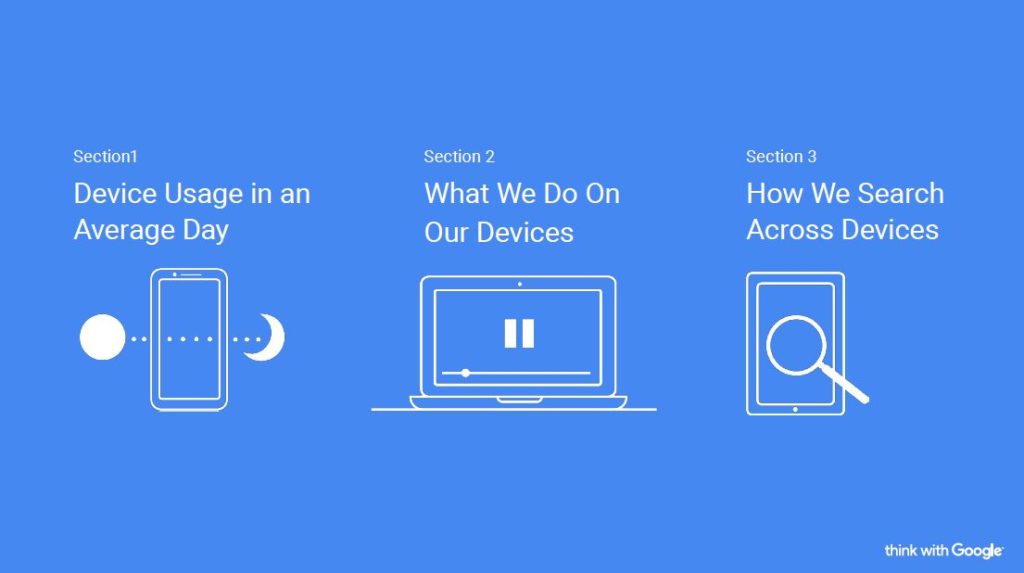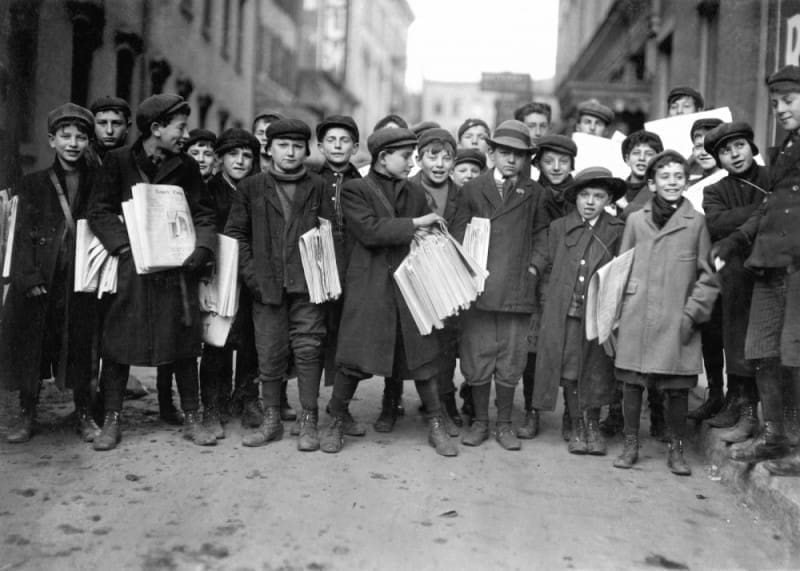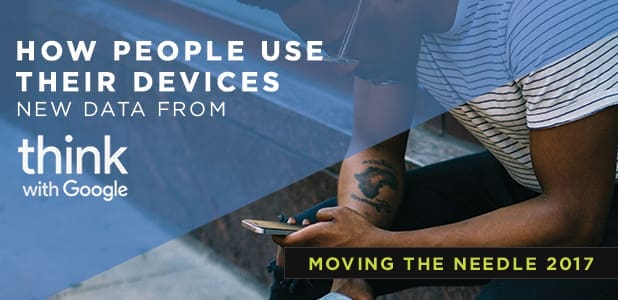
Tablets, desktops, laptops, smartphones …As the devices we have at our disposal continue to vary, so does our behavior.A new Google report takes a comprehensive look at how people are currently using their devices, and what those findings mean for marketers. The numbers are taken from an opted-in sample of nearly 12,000 users and their daily activity over the past year.5 KEY TAKEAWAYS
- It’s now truly a mobile-first world. Four out of five people use a smartphone in an average day, and one in four exclusively use a smartphone for their online access.
- We bounce between devices. Most users (57%) utilize more than one type of device in the course of a typical day, and some 20% use a second device simultaneously while on a computer.
- Search is a mobile activity. When we want answers, nearly 4 in 10 people exclusively reach for their smartphones to search.
- The web is king. Speaking strictly in terms of web browsing, almost half employ multiple devices for this task. A little more than 7 in 10 users browse the web on their phones or computers in a typical day.
- Have signal, will travel. The most popular three places where people use their smartphones are at home, at work, and inside of a store.
DEVICE USAGE ON A TYPICAL DAYOn an average day, 80% of respondents in the study used a smartphone, 2 out of 3 (67%) hopped on their laptop or desktop, and 16% grabbed a tablet.
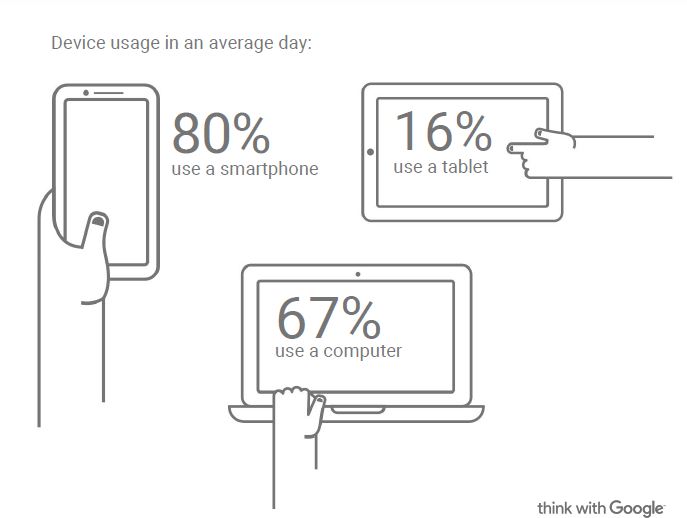
One eye-opening number, particular for marketers who are unsure of their mobile strategy, is the average time spent on a smartphone, nearly three hours each day, versus just two hours on a computer, and 75 minutes on a tablet.As to what time of day smartphones are being used, the study revealed usage remains relatively constant throughout the course of the day. For traditional computers, usage typically peaks at about 8 p.m. in the evening.The good news for marketing teams is that with increased usage across more devices, there are more potential touch-points to engage with audiences than ever before. SEARCH ON MOBILE DEVICESTechnology has evolved to a point that people expect answers at their fingertips.As noted above, some 39% of people solely use smartphones for their web searches, with computer-only searchers for about 32% of the users.
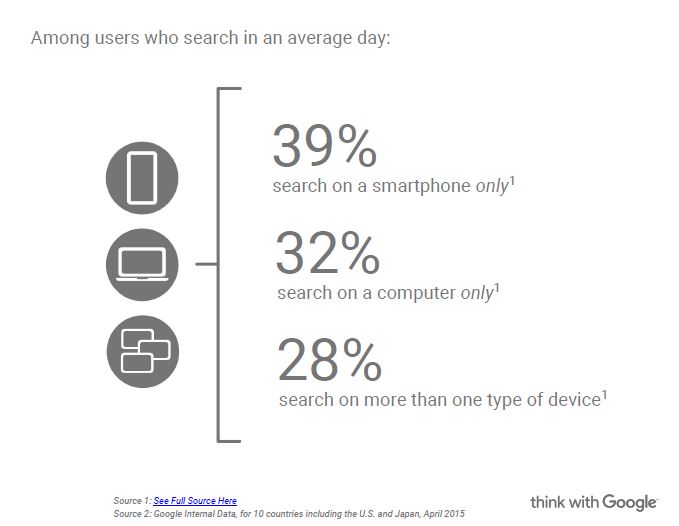
More searches happen on mobile than on computers and tablets for 15 of the 24 hours in a typical day.Mobile use leads in the early morning (before people arrive at work), and then again in the afternoon — which makes sense, considering that’s when most are leaving their places of work and are out and about.When it comes to travel-related search trends, popular themes for smartphone users include car services and taxis, destination activities, and dining.Some of the higher-trending topics year-over-year include travel insurance (55% growth YOY), camping (a 45% uptick), and air travel (40% increase).The data from Google clearly outlines the importance of a robust mobile marketing strategy. As Millennials surpass Baby Boomers as the largest demographic of consumers, marketers need to be increasingly conscience of the mobile experience.Further, the numbers offer context to help marketing teams better understand the reality of the customer journey, the goal being to more effectively reach those consumers with a single story across devices, channels, and formats.ACCESS THE FULL REPORT FROM GOOGLE HERE
